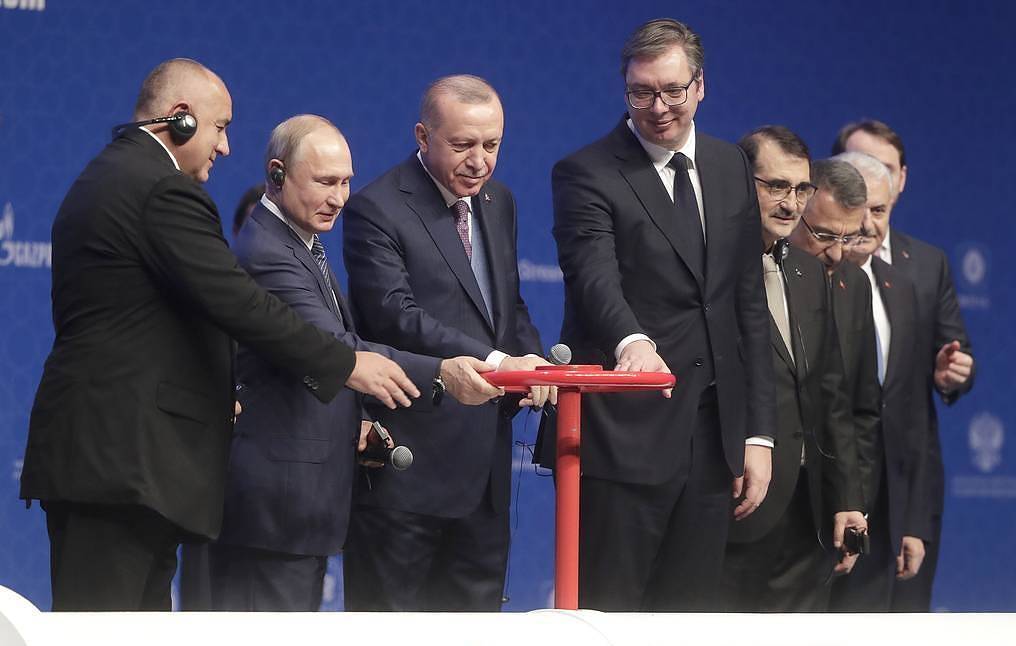Armenia’s current leaders blame previous leaders whenever something goes wrong in the country. After they lost the war, they blamed it on the previous presidents. They do not take any responsibility for their own shortcomings, even though they have been in power now for three years. While the previous rulers can be blamed for many wrongdoings, the current leaders have their own share of shortcomings.
Here is the perfect example of how the current leaders completely mishandled a critical national security project that they are fully to blame. There are many more such examples.
An Armenian businessman by the name of Artak Tovmasyan had the proper connections and the brilliant idea of building state-of-the-art armored military vehicles in Armenia and donating a portion of them to the Armenian government. One would think that Armenian officials would have welcomed such a valuable proposal and would have done everything possible to facilitate this important investment opportunity which has critical national security implications. This is the incredible story of incompetent and uncaring high-ranking Armenian government officials failing to capitalize on this unique offer.
Shortly after Nikole Pashinyan came to power as Prime Minister of Armenia in 2018, Mr. Tovmasyan met with him and proposed to invest in Armenia millions of dollars along with the Canadian Streit Group, a well-known manufacturer of armored military vehicles with 30 years of experience and factories in five countries, including Canada, the United Aram Emirates, Jordan, India and Pakistan. The sixth such facility would have been in Armenia. The total amount of the investment may have reached $20 million which would have included other military-related investors. The project would have also created hundreds of jobs.
Prime Minister Pashinyan expressed interest in the project in 2018 and told his aides to follow up. Regrettably, due to the incompetence and carelessness of Pashinyan’s cadre of officials, three years later, no progress has been made on this vital project, despite Mr. Tovmasyan’s several follow up meetings with the Prime Minister. These armored military vehicles would have been very useful during last year’s war with Azerbaijan, saving the lives of countless Armenian soldiers. Unfortunately, Armenian officials have remained unresponsive to this project, both before, during, and after the war.
Mr. Tovmasyan’s proposal consisted of offering to build gradually around 1,300 armored military vehicles over the next 10 years and donating 130 of them to the Armenian armed forces at no charge. With each vehicle worth $450,000 or more, the total value of the donated vehicles would have been over $60 million.
In return, Mr. Tovmasyan asked that the government of Armenia contribute the necessary land to set up this manufacturing venture on a free industrial zone. Coincidentally, he was made aware of a vacant piece of unused land on the outskirts of Yerevan belonging to the Ministry of Defense. If the project did not materialize, the investor would have been obligated to return the donated land back to the Armenian government.
I am in possession of over a dozen letters sent by Mr. Tovmasyan’s company, First Industrial Zone, to Armenian officials during the past three years, seeking approval for his proposed project. However, despite repeated requests for an answer, the Armenian government did not respond to Mr. Tovmasyan.
The Armenian government referred Mr. Tovmasyan’s proposal to the Interagency Committee which was tasked to review the project. The Interagency Committee included representatives from the Ministries of Economy, Finance, High Tech Industry, Territorial Administration and Infrastructure, Justice, State Revenue Committee, Urban Development Committee, Chamber of Commerce and Industry, and Union of Manufacturers and Entrepreneurs of Armenia. Surprisingly, the Interagency Committee did not include anyone from the Ministry of Defense to properly evaluate a military project. The Interagency Committee’s guidelines require that it review and refer to the government within 20 working days any submitted proposal. However, this deadline passed long ago, despite several reminders.
The most astounding part of this story is the unexpected Facebook post on March 6, 2021, by the recently-appointed Minister of Economy, Vahan Kerobyan, who had studied mathematics, but is clueless about economics.
Minister Kerobyan arrogantly wrote: “In reality, I am the one who stopped this industrial zone project because it ridiculously despises the interests of the citizens of the Republic of Armenia.” Minister Kerobyan was in no position to stop this project for two reasons: 1) As a recently-appointed Minister, he was not even around when this project was presented to the Prime Minister and subsequently referred to the Interagency Committee. 2) The decision to approve or reject this project rested with the Interagency Committee and the Prime Minister.
Minister Kerobyan went on to make more outlandish claims. He wrote: Let Mr. Tovmasyan “submit his proposal to the government’s approval in the next two weeks, but if he wants to pick up the nine hectares of land in Yerevan by promising a negligible amount of investment, then I remain of the opinion that this is not an investment project but a robbery. We have also proposed to implement this business with their conditions and tax permits in a city other than Yerevan, but incomprehensibly, exactly the precious piece of land in Yerevan is necessary to them for this production zone.”
Minister Kerobyan is misleading the public. Even though the Armenian government has not responded to the proposal in several years, he is claiming that he will respond in two weeks. Why hasn’t he then reacted to the existing proposal since his appointment last November? The fact is that he has never made a counter-proposal and has never sat down with the investor to discuss the proposal. Incidentally, the Defense Ministry was the one that suggested the land located on the outskirts of Yerevan to Mr. Tovmasyan, not for free, but for purchase.
Finally, it is very unprofessional of Mr. Kerobyan to respond through a Facebook post to a serious proposal involving a multi-million dollar military production. Regrettably, that reflects the Minister’s lack of qualification for the job he holds.
In conclusion, Armenia lost the war for many reasons, but this type of behavior by an unqualified Minister and an incompetent government does not inspire any confidence that it will be able to attract investors and improve the country’s dismal economic situation anytime soon.



